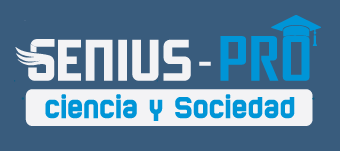RECURSOS PARA AUTORES
CONTACTO
Manuscript Evaluation at Genius-Pro Ciencia y Sociedad (GPCS)
Genius-Pro Ciencia y Sociedad (GPCS), published by Sapiens Ediciones, is a multidisciplinary, biannual scientific journal. Its double-blind peer review system ensures the quality, originality, and impact of the articles, providing an objective evaluation based on the academic relevance and scientific rigor of each submission.
The review is carried out by specialists of recognized academic standing, with no conflicts of interest related to the work under evaluation. Reviewers are selected according to their expertise and publication record, working together with the Editorial Board to validate originality, methodological soundness, and compliance with the editorial standards of the journal.
GPCS maintains an expanding international network of reviewers, composed of PhD holders and experts with proven academic output in high-impact journals indexed in databases such as Scopus and Web of Science.
The process is strictly confidential: reviewers must treat manuscripts with discretion and may not disclose or use their content. If additional expert opinions are required, authors will be informed in advance.
This rigorous evaluation system reflects GPCS’s commitment to academic excellence and the global dissemination of high-impact scientific knowledge.
Initial Editorial Screening
In the first stage, the Editorial Team of GPCS conducts a preliminary evaluation of all submissions. Within a maximum of 72 hours, authors receive an email confirmation with a unique reference number.
During this stage, the Editor-in-Chief or the assigned Editor assesses the manuscript’s alignment with the journal’s scope, originality, academic relevance, and contribution to knowledge. Manuscripts may be rejected at this stage if they do not fit the scope, present structural deficiencies, lack clarity in findings, or show evidence of plagiarism. In case of uncertainty, the Scientific Committee may be consulted.
Manuscripts that pass this stage proceed to peer review. Within 30 days of submission, authors are informed of the outcome. Approved papers are then assigned to expert reviewers, either from the journal’s reviewer panel or external specialists, typically postgraduate researchers or faculty members at national and international institutions.
Double-Blind Peer Review
Manuscripts reaching this stage undergo a double-blind peer review, ensuring the anonymity of both authors and reviewers. Each reviewer completes a structured evaluation form addressing the following aspects:
The estimated time for this review is up to 30 days. Once the process is completed, authors receive the editorial decision. If revisions are requested, authors are given 8 to 15 days to make the required changes, as determined by the Editor.
After the revision stage, manuscripts undergo an editorial quality check, which includes grammar and style editing, verification of compliance with journal guidelines, and final editing. However, successful completion of this process does not guarantee immediate publication, since the final decision depends on editorial policy, thematic priorities, and the publication schedule.
Review Process Details
Role of the Academic Editor
Reviewer Confidentiality
Number of Reviewers Assigned
Monitoring Manuscript Status
Editorial Decision
Possible outcomes include:
This process ensures scientific rigor, transparency, and the highest editorial standards for the articles published in Genius-Pro Ciencia y Sociedad, strengthening its impact within the international academic community.

@2024 GENIUS-PRO Ciencia y Sociedad (GPCS)
The publications are licensed under Creative Commons Attribution 4.0 International.
Publisher: Geinus-Pro Ediciones - Ecuador
Editor-in-chief: Flor Magdalena Jimbo Román - Ecuador
Contact: +593 987237477
Email: gpcienciasociedad@gmail.com
Postal code: 090505
